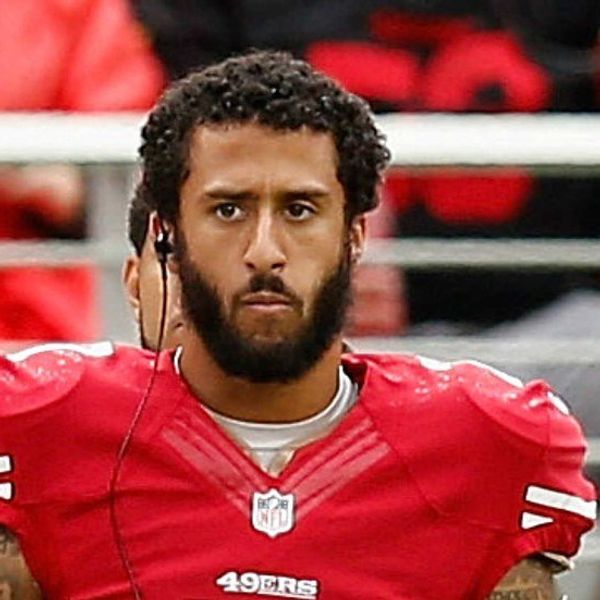Over the past month, controversy between the NFL and its audience has been stirring, placing media into a frenzy.
Since the beginning of NFL's preseason, the San Francisco 49ers quarterback, Colin Kaepernick, has refused to stand during the national anthem. In an interview with the NFL media, Kaepernick told viewers his reasoning behind his refusal to stand for the singing of the national anthem. "I am not going to stand up to show pride in a flag for a country that oppresses black people and people of color," Kaepernick states. To him, and other professional athletes who do not stand, choosing to sit or remain in a kneeling position is bigger than professional sports. Kaepernick even goes to say "This is bigger than football and it would be selfish on my part to look the other way." From his standpoint, he strongly believes he would be doing an injustice to the people by remaining silent; he would be doing an injustice by not influencing protest and establishing change.
The actions of the athletes have not gone unnoticed. In an interview, coaches and officials for the 49ers spoke upon Kaepernick's actions. "The national anthem is and always will be a special part of the pre-game ceremony... we recognize the right of an individual to choose and participate, or not, in our celebration," says representatives for the 49ers. NFL officials have also spoke on the issue saying, "players are encouraged but not required to stand during the playing of the national anthem."
Anyone who typically stands for the anthem, or the recognition of the flag, might ponder whether or not it is a law to stand for at attention, so I did some research. According to the Department of Law at Cornell University, those in uniform are to give the military salute throughout the entirety of the anthem, and all other persons should face the flag and stand at attention. The word "should" reiterates the concept of standing at attention, not being a law, and instead being a right. Scrolling through the feeds of social media, assimilating the differing thoughts and opinions, I discovered the common issue with this situation: soldiers have fought and died for the symbolism behind the flag, as well as the words within our anthem, and warrant honor and respect. This discovery hold a lot of truth, because yes, men and women have fought and died for our rights and freedom, but did all their fighting bring forth change? Is everyone truly equal and free? These are the questions we as Americans should ponder.
Viewers are seeking punishment for Kaepernick's "lack of respect," but instead of leaving it the hands of officials, they rather take it upon themselves to ridicule and harass any player protesting against the anthem. Is this probable cause? Are those, who are taking it upon themselves to possibly threaten the safety and lives of these athletes, doing a justice to America? Are their actions justifiable? In layman's terms, no, their actions, regardless of the seemingly popular opinion, are not justifiable. There are safer and more adequate ways of going about this situation.
Everyone is focused on the athlete's' "lack of patriotism," but are not taking into consideration the core reasons why they are not participating during the playing of the anthem. Former professional basketball player, Mahmoud Abdul-Rauf, who was born into the Islamic faith, chose not to stand for the anthem due to religious beliefs. In article An Awkward Alignment of the Flag and Football, Belson writes "Abdul Rauf did not stand because it conflicted with Islamic beliefs. He was suspended, then let back if there was a compromise." The compromise came down to Abdul Rauf standing with his teammates and coaches during the anthem. This was an unfair compromise. If one wouldn't force someone of the Jewish religion to eat non-Kosher foods, then why make someone of the Muslim religion stand for something they do not believe? Abdul Rauf's religious beliefs temporarily stopped him standing, just as Kaepernick and other athletes' personal beliefs stop them from doing so. The concept is all simple. You cannot force someone to participate in something that they do not believe in.
America, known for its patriotism, freedom-- whether that be from speech, religion, or simply freedom from other countries-- and equality, but for some, those phrases hold little to no truth. For some, America is no longer the country men and women have gone to war for, or a country that endured countless amounts of protests to reach an equilibrium. America is different in the eyes of each individual, and they are entitled to their own opinions.
Are those who do not stand to attention for the national anthem lacking patriotism for our country, or are they simply fighting for their rights? That is up for you to decide.





















